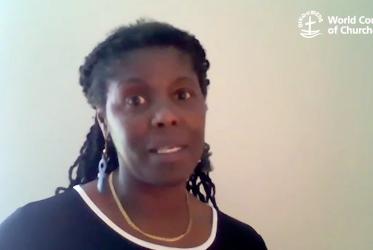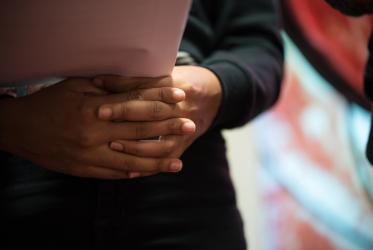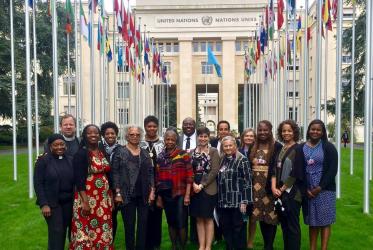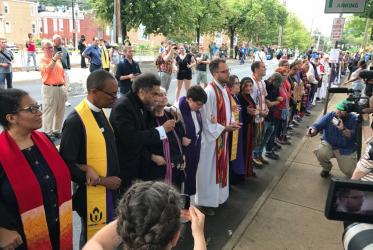Displaying 1 - 20 of 20
“The work of truth-telling has to happen”
28 September 2017
Orthodox bishops in USA condemn racist violence
31 August 2017
Presbyterian leaders: racism in USA is “pernicious poison”
31 August 2017
Seminar explores music as bridge between cultures
24 November 2016
USA Racial Justice Accompaniment Visit
18 April 2016
“No decision about us without us”
09 November 2015
Reclaiming our humanity
23 June 2015
Advent protests in New York City
16 December 2014
Towards accessible and inclusive societies and churches in Latin America
15 September 2014











